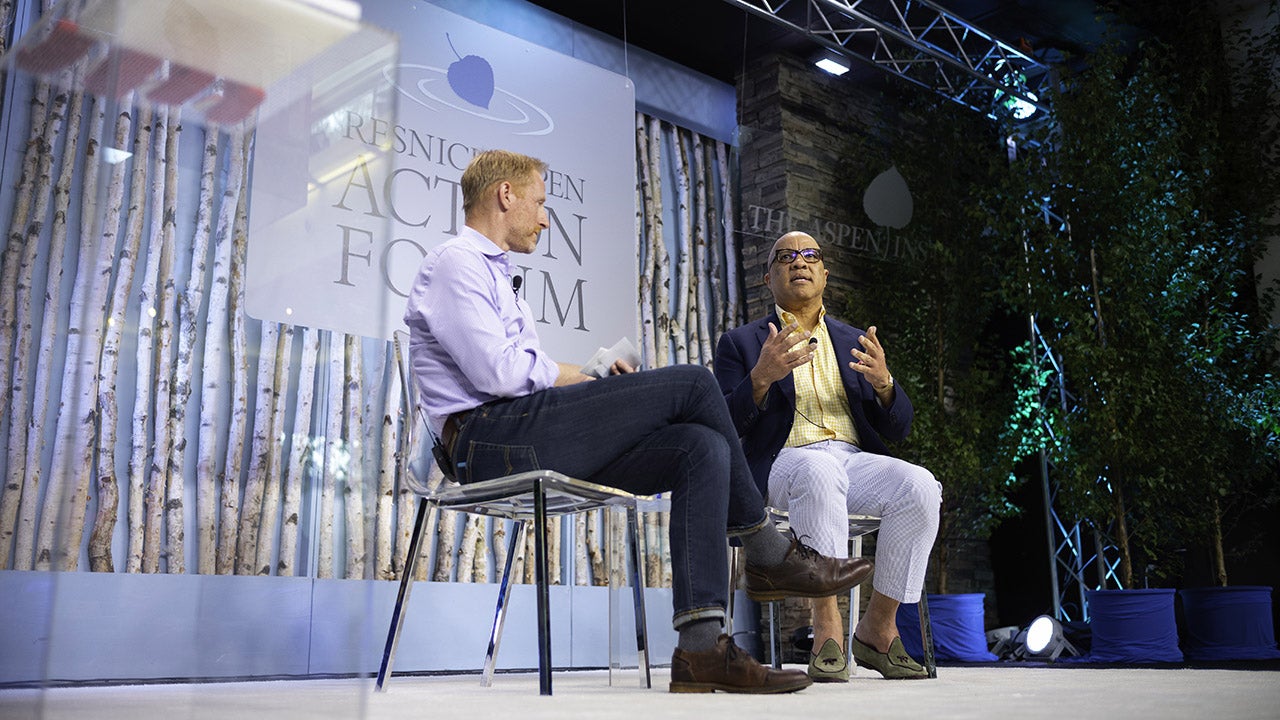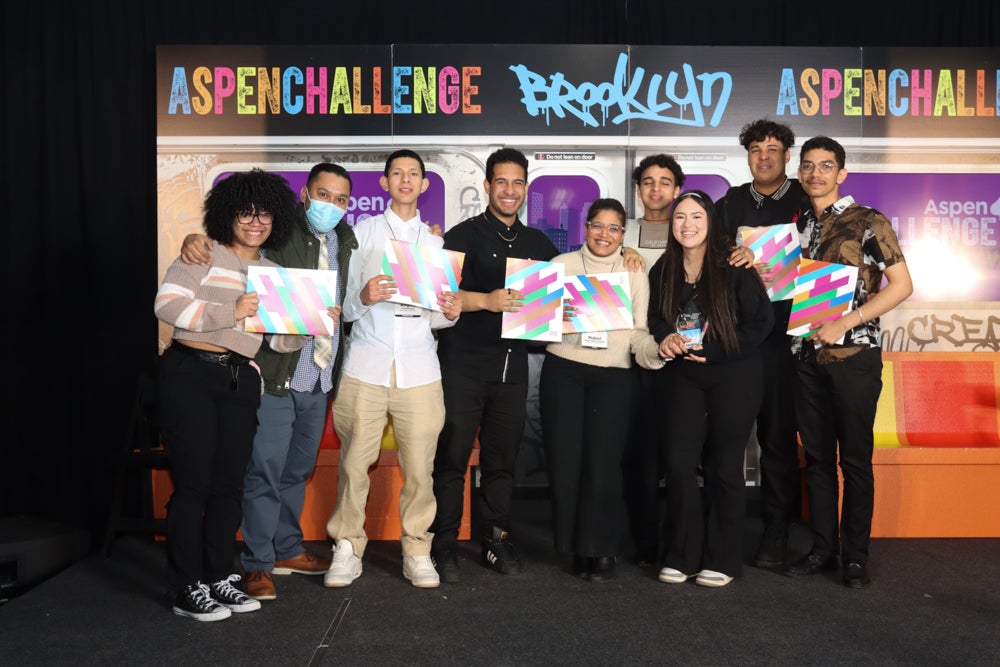On Thursday evening, David Brooks, executive director at the Aspen Institute, Indrani Bagchi, diplomatic editor of the Times of India, and Felix Maradiaga, a leading human rights activist in Nicaragua, discussed how to become a courageous leader at the Resnick Aspen Action Forum. Their conversation was moderated by Kristen Grimm, founder and president of Spitfire Strategies.
Maradiaga, a Central America Leadership fellow, started the conversation by exploring the current political situation in Nicaragua. Recognizing that Thursday marked the 100th day of protests, he said that standing up to the Ortega dictatorship was the only moral thing for him to do. Maradiaga left a comfortable job in the business sector to join his fellow citizens and voice his discontent.
When asked what the practice of courage looks like Maradiaga responded: “It is humility.” With respect to moral courage, all of the other traits of leadership become irrelevant.
Bagchi, a Kamalnayan Bajaj fellow, provided some insight into leadership in India. “In India, leaders crop up from the unlikeliest places,” she said. Bagchi also explained that the Indian media is actually more negatively affected by large corporations than the government. When corporations disapprove of coverage they remove advertisements, which news outlets heavily rely on. Since Bagchi covers international news, the topics she reports on do not typically concern Indian corporations. However, when the current administration came into power, they adopted an adversarial approach to the media.
I see fear as something unproductive that fills your emotional space. So, if I had less fear…I think my heart would have more room for love, more room for compassion, and more capacity to have honest conversations with those that disagree with me. –@maradiaga at #AspenAction pic.twitter.com/wAYu1r32B4
— The Aspen Institute (@AspenInstitute) July 27, 2018
Bagchi remains unfazed. In five years the administration may or may not be in power, she said. But the media will. She likened her industry to cockroaches, pointing out that the tiny creatures have managed to survive nuclear warfare. “I really like cockroaches!” she said. But she admits that if she didn’t feel any fear, she would run for office.
“Fear is a surprisingly good GPS system, it tells you what you really want,” said Brooks. Failure is often the biggest fear of leaders. Brooks noted that there are three types of people who have overcome this. The first is the one who has been through something worse than failure. He gave the example of Senator John McCain, a former prisoner of war who listens to his “inner voice” in spite of the political fallout. The second is the person whose moral identity is fully-formed. He cited the French Huguenots who defied their government to provide refuge for Jews during World War II. The third is a person who has found a higher love than oneself. Brooks mentioned Mother Teresa who lived a life in service to others, despite her own periods of doubt.
Maradiaga added that the best leaders are sensitive to the fears of others. To be courageous, he said, you need to focus on the issues and reconnect with your motivations. He noted that if he were more courageous he would have more honest conversations with those who disagree with him. It is important to try to deeply understand people who are different than us or have opposing viewpoints.
“Courage is compassion,” he said.
This post originally appeared on the Aspen Global Leadership Network blog.


